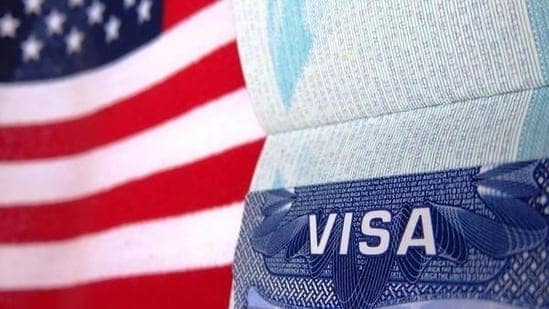The H-1B visa is a non-immigrant visa enabling U.S. companies to engage foreign workers in specialized occupations demanding theoretical or technical expertise. It is crucial for technology firms, relying on it to recruit tens of thousands of employees annually, often from countries such as India and China.
The US federal agency announced a significant overhaul of its annual lottery for the H-1B specialty occupation visa, revealing that the application submission process for fiscal year 2025 would commence on March 6. The H-1B visa, a non-immigrant category, permits U.S. companies to engage foreign workers in specialized roles demanding theoretical or technical expertise. Technology firms, particularly reliant on this visa, annually recruit tens of thousands of employees, often from countries such as India and China.
The revamped system introduces a beneficiary-centric selection process for registrations by employers. Unlike the previous practice of individuals submitting multiple applications, which led to system abuse and fraud, the new approach involves counting and accepting H-1B visa applications based on individual applicants. Even if an individual submits multiple applications for different companies, these will be considered as one application, evaluated based on personal credentials like passport numbers.
The US Citizenship and Immigration Services (USCIS) unveiled a series of new regulations designed to enhance the integrity and minimize the risk of fraud in the H-1B registration process. These measures are geared towards reducing the possibility of manipulating the registration system and ensuring that every beneficiary stands an equal chance of being selected, irrespective of the number of registrations submitted on their behalf, as stated by the federal agency.
USCIS Director Ur M. Jaddou emphasized the agency’s commitment to continually seeking ways to fortify integrity, combat potential fraud, and simultaneously enhance and streamline the application processes.
“The enhancements in these areas aim to promote fairness in H-1B selections for both petitioners and beneficiaries, facilitating a fully electronic H-1B process from registration, where applicable, through the final decision and transmission of approved petitions to the Department of State,” he stated.
USCIS announced that the initial registration period for the fiscal 2025 H-1B cap is set to commence at noon Eastern on March 6 and will continue until March 22. Throughout this period, potential petitioners and their representatives, if applicable, are required to utilize a USCIS online account to electronically register each beneficiary for the selection process and remit the associated registration fee for each beneficiary.
The provided passport or travel document must align with the beneficiary’s intended use for entry into the United States, should they be issued an H-1B visa while abroad. Each beneficiary is required to register with only one passport or travel document, USCIS emphasized.
Additionally, USCIS is clarifying requirements related to the requested employment start date on specific petitions subject to the congressionally mandated H-1B cap. This clarification allows filings with requested start dates after October 1 of the relevant fiscal year, aligning with existing policy. The beneficiary-centric process entails selecting registrations based on unique beneficiaries rather than the registration itself. This approach aims to minimize fraud opportunities and ensure equal selection chances for each beneficiary, irrespective of the number of registrations submitted by an employer on their behalf.
Commencing with the fiscal year 2025, starting on October 1, 2024, during the initial registration period, USCIS will mandate registrants to furnish valid passport information or valid travel document information for each beneficiary. From February 28, companies will be permitted to open accounts, initiating and completing the registration process.
USCIS highlighted that this final rule includes provisions establishing a beneficiary-centric selection process for employer registrations, formalizing start date flexibility for specific petitions under the congressionally mandated H-1B cap, and introducing additional integrity measures related to the registration process.
The H-1B final rule also formalizes USCIS’ authority to deny or revoke H-1B petitions in cases where the underlying registration includes a false attestation or is otherwise invalid. Furthermore, the rule empowers USCIS to deny or revoke the approval of an H-1B petition if it determines that the fee associated with the registration is declined, not reconciled, disputed, or deemed otherwise invalid after submission.
According to a statement from Sharvari Dalal-Dheini, the Director of Government Relations at the American Immigration Lawyers Association (AILA), the new H-1B registration process marks a significant overhaul in how the lottery registration is conducted, fostering a more equitable system. Following last year’s registration period, with over 750,000 registrations for 85,000 visas, it became evident that the existing system was impractical.
Dalal-Dheini commended the announced changes, emphasizing that they will establish a beneficiary-centric lottery process to level the playing field. She also applauded the Department of Homeland Security (DHS) for taking steps to transition from a flawed model to one that ensures a fairer system in time for the upcoming registration period.






